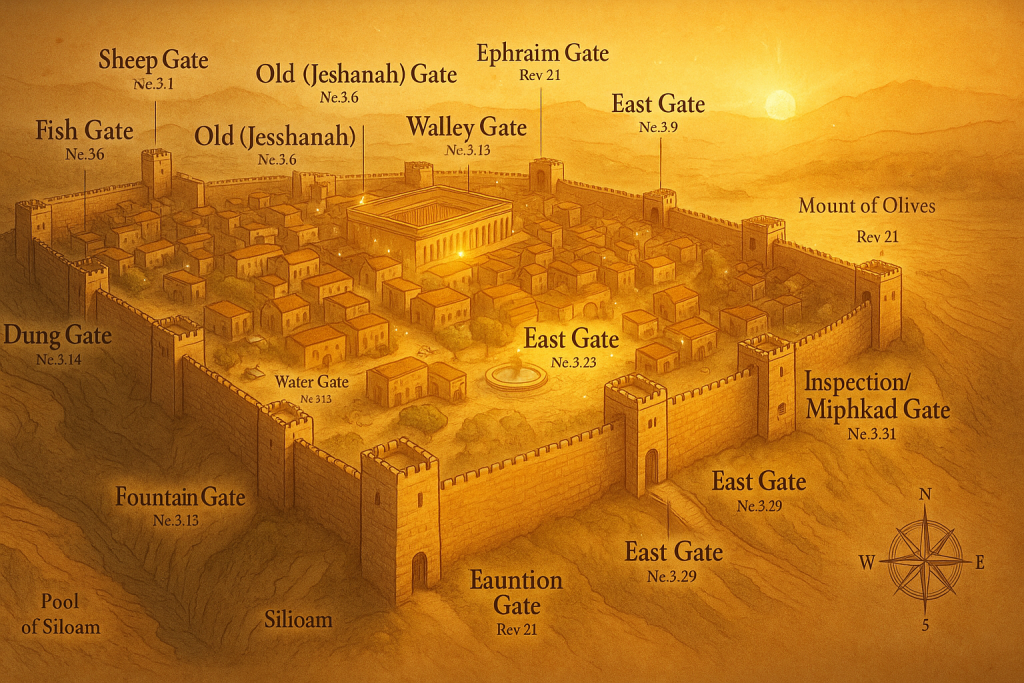In the Bible, silver is far more than a precious metal it carries deep symbolic meaning that reflects both divine purity and human struggle. When people ask what does silver represent in the Bible, they are touching on a theme that weaves through Scripture from Genesis to Revelation. Silver was used as currency, a tool of trade, and an offering to God, but it also became a powerful metaphor for refinement, redemption, and even moral testing.

Throughout biblical history, silver appears in the lives of patriarchs, prophets, and kings. Abraham was described as “very rich in cattle, in silver, and in gold” (Genesis 13:2), showing its connection to prosperity and blessing. Yet in other passages, the same metal symbolizes betrayal and corruption, as when Judas Iscariot accepted thirty pieces of silver to betray Jesus (Matthew 26:15). This duality value versus corruption reveals why the question of silver’s meaning is spiritually significant.
Understanding the biblical representation of silver invites us to look beyond material worth. It challenges us to see how God uses the image of refined silver to illustrate spiritual purification, moral integrity, and the testing of faith. As we explore the layers of this symbol, we uncover how something so earthly can reflect heavenly truth a reminder that, in Scripture, every element of creation carries a message for the soul.
Silver as a Symbol of Value and Wealth
From the earliest pages of Scripture, silver is portrayed as a symbol of value and wealth, reflecting not only material prosperity but also divine favor and human responsibility. In ancient Israel, silver served as one of the main measures of economic power it was used to buy land, trade goods, and make offerings to the Lord. When we ask what does silver represent in the Bible, one clear answer is that it embodies abundance and blessing, often linked to God’s provision.
In Genesis 13:2, Abraham’s riches are described in terms of “livestock, silver, and gold,” showing that silver was considered a tangible sign of God’s blessing. Similarly, during King Solomon’s reign, the Bible says that silver was so plentiful in Jerusalem that it was regarded as common as stones (1 Kings 10:27). These examples show how deeply silver was tied to success, stewardship, and divine reward.
Yet, the biblical idea of wealth goes beyond possession. Silver’s presence in sacred offerings and temple construction such as in Exodus 26, where silver sockets supported the tabernacle reveals that value is not measured merely by accumulation but by dedication to God’s purpose. In this sense, silver teaches a balance: wealth can be both a blessing and a test of the heart.
When understood spiritually, silver’s worth reminds believers that material prosperity must serve higher aims. True value lies not in what we own but in what we offer reflecting purity, gratitude, and obedience to God’s will.
Read also our article about: Dream About Pigs Biblical Meaning.
Silver and the Theme of Refinement and Purification
Among all the symbolic meanings connected to silver, its association with refinement and purification stands out as one of the most profound. When people wonder what does silver represent in the Bible, this theme reveals God’s process of transforming the human heart. Just as silver must pass through fire to remove impurities, believers are refined through trials, testing, and divine correction.
In Psalm 12:6, the Word of God is compared to “silver refined in a furnace of clay, purified seven times.” This image conveys absolute purity—something that has endured every stage of cleansing until nothing false remains. Similarly, Malachi 3:3 portrays God as a “refiner and purifier of silver,” patiently watching over the process until His people reflect His righteousness. The act of refining becomes a spiritual metaphor: God uses life’s heat to burn away pride, doubt, and sin, leaving behind faith that shines like polished metal.
Throughout Scripture, this theme of purification is not punishment but preparation. The trials believers face are not meant to destroy them but to shape them into vessels of honor. Just as raw silver holds hidden brilliance, the soul contains divine potential waiting to be revealed through endurance and faith.
Ultimately, silver’s refining process teaches that spiritual growth requires surrender and trust. When we allow God to refine us, we mirror His holiness and discover true value beyond worldly measures a living reflection of purity forged through grace.
Silver in the Bible as a Metaphor for Redemption and Rescue
In many passages, silver functions as a metaphor for redemption and rescue, revealing how God restores what is lost and reclaims what is His. When exploring what does silver represent in the Bible, this theme brings out the deep spiritual connection between value, sacrifice, and salvation. Silver was not only a symbol of wealth but also a medium of exchange for atonement, representing the price paid to redeem lives.
In Exodus 30:15–16, each Israelite was required to offer a half-shekel of silver as a ransom for their soul, ensuring that no plague would strike them during the census. This offering called the “atonement money” symbolized that every life had worth before God and could be redeemed through a sacred exchange. Likewise, Numbers 18:16 connects silver with the redemption of the firstborn, reinforcing its role as a bridge between guilt and grace.
Over time, this association between silver and redemption came to foreshadow the ultimate act of rescue Christ’s sacrifice. Although the betrayal of Jesus for thirty pieces of silver (Matthew 26:15) carried the stain of sin, it also fulfilled prophecy and underscored the cost of salvation. In this paradox, silver becomes both a tragic and redemptive symbol: it exposes human weakness while pointing to divine mercy.
Ultimately, silver’s biblical meaning as a metaphor for redemption and rescue reminds believers that God’s grace carries both weight and worth. Just as silver was offered to restore and protect, Christ’s life was given to redeem humanity a priceless exchange that transforms loss into eternal freedom.
When Silver Represents Corruption, Decline or Moral Warning
While silver often symbolizes purity and redemption, the Bible also uses it as a mirror for corruption, decline or moral warning. In these moments, the same metal that once reflected divine blessing becomes a cautionary emblem of greed, hypocrisy, and spiritual decay. This dual nature deepens the understanding of what does silver represent in the Bible showing that even what is precious can lose its value when separated from righteousness.
In the book of Isaiah, the prophet rebukes the people, saying, “Your silver has become dross, your choice wine is diluted with water” (Isaiah 1:22). Here, silver represents moral compromise: what was once pure and valuable has been corrupted by injustice and idolatry. Similarly, Ezekiel 22:18–22 compares Israel to impure silver mixed with waste metal, destined for refining fire. These warnings reveal that spiritual decline begins when external wealth replaces internal devotion.
Perhaps the most haunting example is the story of Judas Iscariot. The thirty pieces of silver he accepted to betray Jesus (Matthew 26:15) turned a symbol of worth into one of guilt and regret. The same silver that could have honored God instead became the price of sin illustrating how quickly moral value can collapse when faith is traded for profit.
Therefore, silver’s darker meaning serves as a timeless warning. Wealth, influence, and outward success lose all meaning when detached from integrity. Through this lens, silver reminds believers that true worth is not found in possession or appearance but in a heart purified by truth and faithfulness before God.
Read also our article about: What Does 888 Mean in the Bible.
Practical Application: How the Biblical Symbolism of Silver Influences Us Today
Understanding what does silver represent in the Bible is not merely an exercise in symbolism it offers powerful lessons for modern faith and daily living. The spiritual qualities attached to silver value, refinement, redemption, and moral awareness can guide how believers approach both material wealth and personal growth.
First, silver reminds us of the importance of purity in thought and action. Just as silver must be refined through intense heat to reveal its true shine, we, too, are refined through life’s challenges. Each trial we endure becomes an opportunity for transformation, drawing us closer to God’s purpose.
Second, silver’s association with redemption teaches gratitude and humility. In a world often driven by status and accumulation, remembering that true worth comes from grace not possessions helps believers maintain a healthy perspective. The biblical use of silver as atonement money encourages us to live with a sense of responsibility and spiritual integrity.
Finally, silver’s warnings about corruption call us to self-examination. It reminds us that blessings lose their beauty when used selfishly or without justice. Like the prophets of old, we are invited to seek purity not only in our hearts but also in our actions toward others.
In essence, silver’s symbolism bridges heaven and earth it points to the refining work of God in our souls and challenges us to live lives of value, honesty, and faith. When understood this way, silver becomes more than a biblical image; it becomes a daily reminder that every believer is called to shine with divine purpose.


